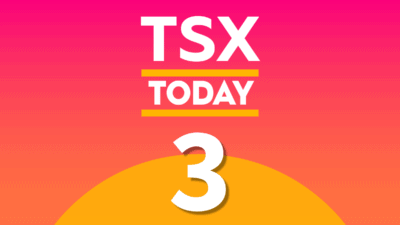The headlines first started showing up in early 2013.
Several prominent U.S. hedge funds were entering into a new trade, one particularly interesting for folks on this side of the border. A trade that could have wide-reaching implications if it worked out. And, most importantly, a trade that would benefit from millions of Canadians losing billions in wealth, at least on paper.
Yes, I’m talking about the bearish bet on Canada.
As we can all say with the benefit of hindsight, shorting Canada was a pretty poor choice for those hedge funds. Canadian stocks have had periods of weakness since, but for the most part they’ve continued heading steadily higher.
At least, up until October.
Before, the main thesis of shorting Canada was housing. No matter what metric you use, it’s obvious Canadian houses are overvalued. Price-to-income ratios are out of whack, especially in markets like Toronto and Vancouver. Price-to-rent ratios are above 20x in so-called affordable markets, soaring to more than 40x in hot markets. And as a final nail in the coffin, even the Bank of Canada has said home values are between 10 and 30% overvalued.
But as the old saying goes, the market can stay irrational longer than you can stay solvent. To apply that axiom to housing, nothing is going to happen unless we get some sort of economic event that shatters the confidence of the average Canadian home buyer. Throughout 2013 and 2014, that event didn’t come.
Now, we may have the event that causes the first domino to fall, starting a chain reaction that ends with much lower house prices, tepid (or worse) overall economic numbers, and a stock market that continues to fall in 2015. Yes, I’m talking about oil.
I don’t know what oil is going to do next week, next month, or next year. I am certain that it’ll be much higher at some point in the future, but I don’t know about the near term. It’s certainly possible it stays weak throughout 2015, which could be the catalyst that starts a decline in most Canadian assets.
Of course, there are moves you can make that guard against that, all without the hassle and risk of going short. For instance, you can avoid the Canadian banks. In a situation where there’s a broad decline in Canadian housing levels, the two weakest banks would arguably be Canadian Imperial Bank of Commerce (TSX: CM)(NYSE: CM) and National Bank of Canada (TSX: NA).
National Bank is overly focused on the Quebec market with hardly any exposure outside of Canada, while CIBC only has a small amount of exposure to the U.S. and the Caribbean. And since they’re the two smallest of the major Canadian banks, investors will perceive them as being weakest.
If the banks decline during a housing meltdown, Home Capital Group Inc. (TSX: HCG) will get hit especially hard. The company lends to borrowers who can’t qualify for a traditional mortgage, charging a premium to do so. But unlike every other lender in the country, it has moved away from loans guaranteed by mortgage default insurance, and into riskier stuff. Plus, the company is overly exposed to the Toronto area, which could be the worst hit when the real estate crash happens.
Investors who are bearish on Canada and looking for a stock to buy might want to take a look at Fairfax Financial Holdings Ltd. (TSX: FFH), which is ran by the man known as Canada’s Warren Buffett. Much like Buffett, Fairfax’s CEO Prem Watsa uses insurance premiums as a form of free leverage to use to invest in undervalued stocks.
But these days, Watsa isn’t seeing much that’s undervalued. In fact, he’s so bearish that he’s placed a massive bet on stocks going down. If he’s right, Fairfax will do extremely well as just about every other stock suffers.
I continue to be bullish on Canada. Sure, I think housing is overvalued, but I’d rather just avoid the banking sector and focus on undervalued securities. I suggest other investors do the same. Leave shorting Canada to the pros.







